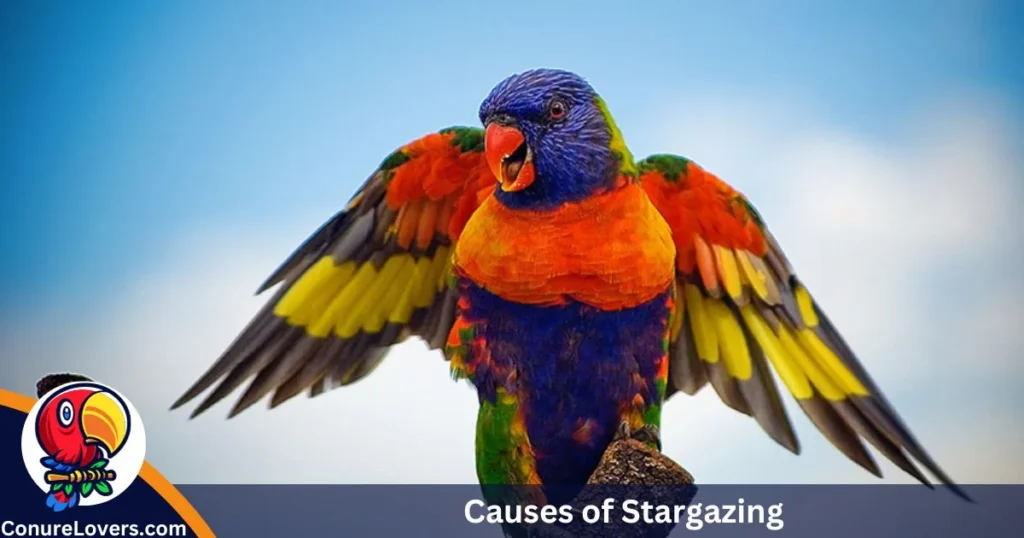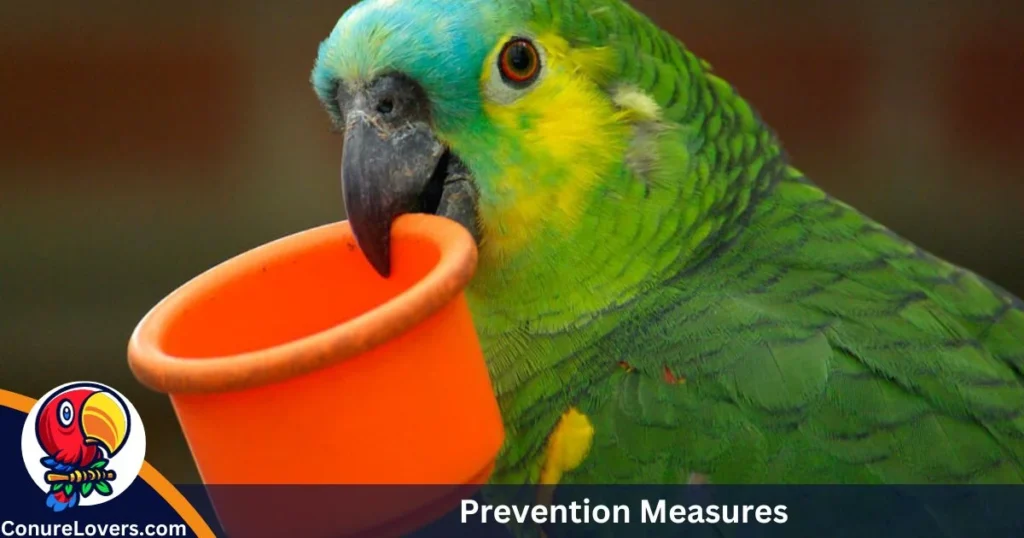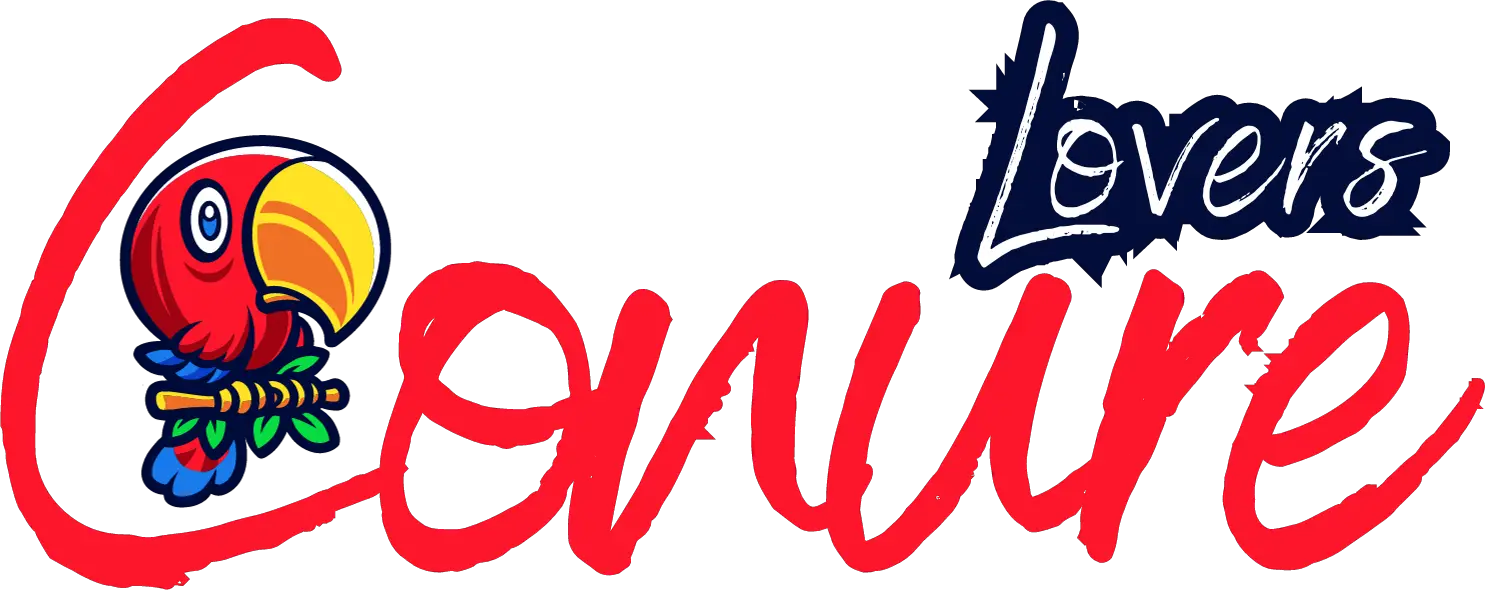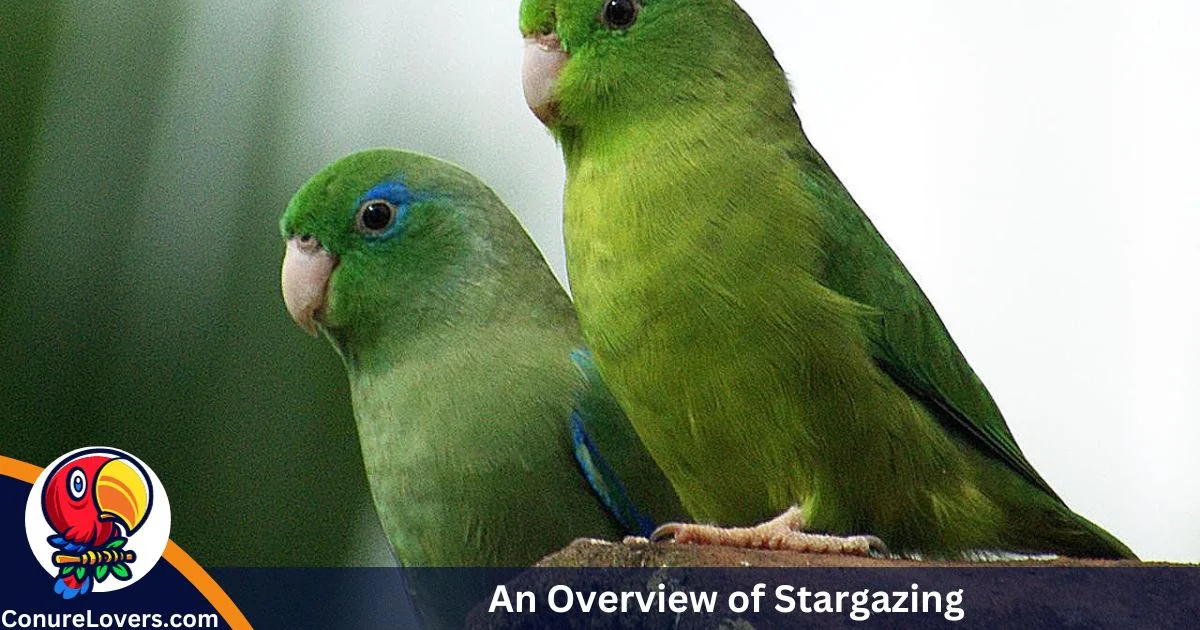Stargazing in Parrots. Sure thing! Check out this twisty thing in birds – it’s called stargazing or twirling! It’s a bit weird, and it happens to birds like finches and big macaws. When a bird gets caught up in stargazing, it starts doing some funky head moves and gets all disoriented.
“Stargazing is a weird thing that happens to birds. It makes them do strange and repetitive movements with their heads. These birds might tilt their heads back, sleep with their heads between their legs, spin their heads around in circles, or look up a lot. This can happen suddenly, even if the birds were fine before and didn’t have any health issues.”
Sounds odd, right? Well, it can be a big deal if you don’t do something about it. So, let’s dive into why it happens, what signs to look for, how to treat it, and ways to stop it from happening in the first place. Cool?
What is Stargazing In Perrot
Stargazing is a quirky condition in birds where they do strange and repetitive head movements. Picture this – birds throwing their heads back, sleeping with their heads between their legs, doing head circles, or just staring up at the sky.
It’s not something they plan; it can hit out of the blue, even if the bird was healthy before. Finches are often the ones caught up in this, but other parrots can get it too. It’s a head-scratcher, right?
Progression and Consequences
Uh-oh! If we don’t fix stargazing in birds, things can get really bad. They might forget how to fly, wobble around, fall off their perches, and have a tough time moving in their cage. Finding food and water becomes a real challenge, and they could end up starving. Not good, right? Gotta take care of our feathered friends!
Causes of Stargazing

The cause of stargazing is a bit of a mystery, but a few things might be involved. Check it out:
- Egg Positioning: If a bird’s egg is in a weird spot or not in great shape, it could lead to stargazing. This is more relevant when the bird has it from the get-go.
- Viral/Bacterial Infections: Nasty stuff like bird flu can bring on stargazing. Turkeys hit by bird flu might act sluggish, lose their appetite, and show signs of stargazing.
- Yeast Infection: Some folks think yeast infections might be a cause, but we need more research to say for sure.
- Chemical Imbalance: Messed-up chemistry in a bird’s body can also be part of the stargazing story.
- Nutritional Deficiencies: Not getting enough vitamins and minerals, especially lacking in vitamin D or having too much calcium, could lead to stargazing. So, feeding them a balanced, healthy diet is a big deal.
- Genetic Predisposition: Seems like there’s a chance that stargazing could run in the family. Best not to breed birds with this condition to keep it from passing down the line.
- Inner Ear Problems: If a bird’s inner ear is acting up, messing with their balance and sense of direction, it might play a role in stargazing.
Treatment Options
Though there’s no surefire cure for stargazing, some treatments look promising in managing the condition. But remember, these are just for reference. Since stargazing can come from different issues, it’s best not to give these drugs to your bird without checking in with a vet first.
- Nystatin: This antifungal medicine seems to work in some cases of stargazing, especially if there’s a suspicion of a yeast infection.
- Trimethoprim Sulfa: When it’s a bacterial thing, antibiotics like trimethoprim sulfa have shown good results in tackling stargazing symptoms.
- Vitamin B12: Giving a boost of vitamin B12 can help shore up the nervous system and maybe ease stargazing symptoms.
- Enhanced Nutrition: A well-balanced diet loaded with essential vitamins and minerals can fix up nutritional gaps that might be causing stargazing.
Prevention Measures

Stopping stargazing and other bird troubles means being a bit proactive:
- Breeding Practices: Don’t pair up birds with a family history of stargazing. Let’s break that chain and not pass it down to the little ones.
- Optimal Nutrition: Feed your feathered pals a good, all-around diet. Keep those vitamins and minerals in check to avoid any nutritional hiccups.
- Clean Environment: Birds deserve a tidy home. Keep things clean – water, air, all of it. A fresh and healthy environment keeps the problems away.
Final words
Stargazing in Perrot, is a puzzling condition seen in different bird species. We’re not entirely sure what causes it, but things like genetic tendencies, infections, and not getting the right nutrients might be involved.
Although there’s no surefire fix, treatments like antifungal and antibiotic meds, along with giving them better food, can help handle the situation. To keep our feathered buddies happy and healthy, it’s smart to take preventive steps and make sure they’re living their best bird lives.

Nicholas Clark here, your Easy Conure Care Guide at “Conure Lovers.” I’m here to simplify conure care for you. Let’s navigate the basics together, ensuring your feathery friend enjoys a colorful and chirpy life.












